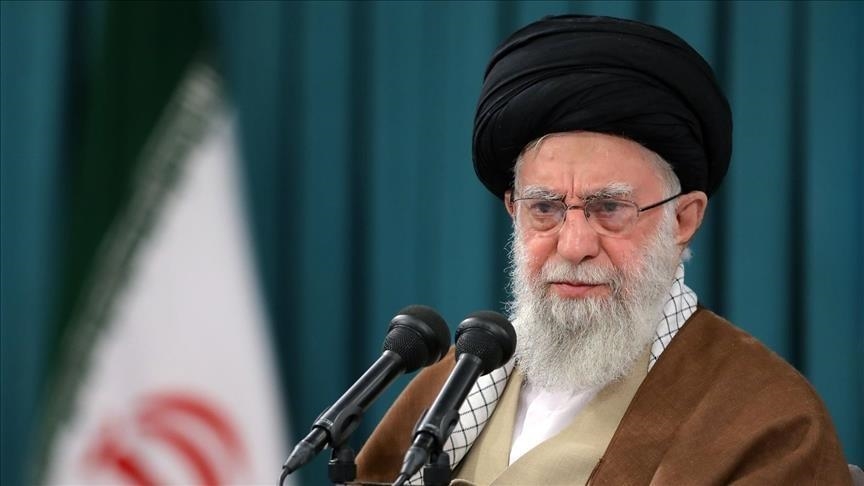Tehran responds to Trump’s threat: Khamenei warns of retaliation

By Damsana Ranadhiran
Tensions between the United States and Iran have once again flared following U.S. President Donald Trump’s recent threat to bomb Iran if it does not agree to a new nuclear deal. In response, Iran’s Supreme Leader Ayatollah Ali Khamenei issued a stark warning that any attack would be met with strong retaliation. The heated exchange comes at a time of increased geopolitical friction, with Iran’s nuclear program at the center of international scrutiny.
During an interview with NBC News on March 30, Trump stated unequivocally that Iran would be bombed “the likes of which they have never seen before” if it failed to comply with his terms for a nuclear agreement. This statement marks a continuation of his hardline stance against Tehran, a policy he championed during his first term in office when he unilaterally withdrew from the 2015 Joint Comprehensive Plan of Action (JCPOA), an agreement designed to curb Iran’s nuclear ambitions in exchange for sanctions relief.
Trump’s withdrawal from the deal led to the reimposition of stringent economic sanctions on Iran, which has since reduced its compliance with the JCPOA’s terms. Iran has repeatedly insisted that its nuclear program remains peaceful and adheres to international frameworks, despite concerns from the Joint Comprehensive Plan of Action (IAEA) that the country has ramped up uranium enrichment to 60% purity, approaching weapons-grade levels.
Following Trump’s remarks, Ayatollah Khamenei responded forcefully in a speech in Tehran, declaring that any aggression from the U.S. or its allies, including Israel, would be met with a “strong, reciprocal blow.” He emphasized that Iran would not tolerate external threats and warned that attempts to incite domestic unrest within Iran, as allegedly orchestrated in previous years, would also be countered.
Khamenei’s official X (formerly Twitter) account echoed this sentiment, stating, “The U.S. and the Zionist regime threaten to commit vicious acts. Of course, if such vicious acts are committed, they will definitely receive a strong, reciprocal blow.”
“If the U.S. and the Zionist regime are thinking of stirring up sedition inside Iran, as they’ve done in some previous years, the Iranian nation itself will answer them,” he added. The statement serves as a direct message to Washington and its allies that Iran will not capitulate under pressure or intimidation tactics.
The latest threats and counter-threats come amid ongoing concerns about Iran’s nuclear activities. The IAEA has expressed growing unease over Tehran’s enrichment of uranium and the lack of transparency in its nuclear program. However, Iran has consistently denied accusations that it is developing nuclear weapons, maintaining that its program is solely for civilian energy purposes.
Iranian President Masoud Pezeshkian recently addressed the situation, acknowledging Trump’s claim that a letter had been sent to Khamenei proposing new negotiations. While Pezeshkian did not outright reject the possibility of diplomatic engagement, he made it clear that Iran’s trust in the U.S. has been severely damaged by Washington’s past actions. “The path of indirect negotiations is open,” he stated during a cabinet meeting on March 30, signaling that while direct talks are unlikely, backchannel diplomacy could still be pursued.
Iran Files Protest with the United Nations
Iran has filed an official protest at the United Nations Security Council against U.S. President Donald Trump’s threat to conduct military strikes against the country, warning Washington and Tel Aviv of a swift and decisive response in case of any act of aggression.
Iran’s Permanent Representative and Ambassador to the United Nations, Amir Saeed Iravani, wrote in a letter to President of the Security Council Christina Markus Lassen and UN Secretary General António Guterres, stating that the United States would be fully responsible for the grave consequences of any hostile action against the Islamic Republic.
Below is the full text of the letter:
Excellency,
“Upon the instructions from my government, and further to Iran’s previous letters, including the letter dated 17 March 2025 (S/2025/166), I write to you regarding yet another egregious violation of international law and the Charter of the United Nations by the United States of America. In a recent interview on 30 March 2025 with NBC News, the President of the United States once again resorted to the language of force, openly threatening the Islamic Republic of Iran with military action, stating, ‘If they don’t make a deal, there will be bombing. It will be bombing the likes of which they have never seen before.’ Such reckless and belligerent statements constitute a flagrant violation of international law and the core principles of the United Nations Charter, particularly Article 2(4), which explicitly prohibits the threat or use of force against any state’s territorial integrity or political independence.
The President of the United States, since taking office in January 2025, has disregarded and violated all international norms and principles upon which the United Nations was founded. He consistently threatens independent nations with the use of force, a pattern that sets a dangerous precedent in international relations. It is deeply regrettable and concerning that the United States, a permanent member of the U.N. Security Council, blatantly ignores its obligations under the U.N. Charter and wields military power as its primary tool of coercion to advance its political and geopolitical objectives.
In light of these grave violations and their potential consequences, the Islamic Republic of Iran urges the U.N. Security Council to fulfill its responsibility under the U.N. Charter to maintain international peace and security. The Security Council must unequivocally condemn the U.S. President’s threats as violations of international law and the U.N. Charter and demand that the United States uphold its legal obligations under international law and the U.N. Charter. The Security Council and the international community cannot remain silent in the face of such warmongering provocations. Failure to act risks catastrophic consequences not only for the region but for international peace and security.
The Islamic Republic of Iran remains firmly committed to regional peace, stability, and security and has no interest in conflict or escalation. However, it strongly warns against any military adventurism and will respond swiftly and decisively to any act of aggression or attack by the United States or its proxy, the Israeli regime, against its sovereignty, territorial integrity, or national interests. The United States will be fully responsible for the grave consequences of any hostile action.”
“I should be grateful if you would circulate the present letter as a document of the Security Council.”
“Please accept, Excellency, the assurances of my highest consideration.”




